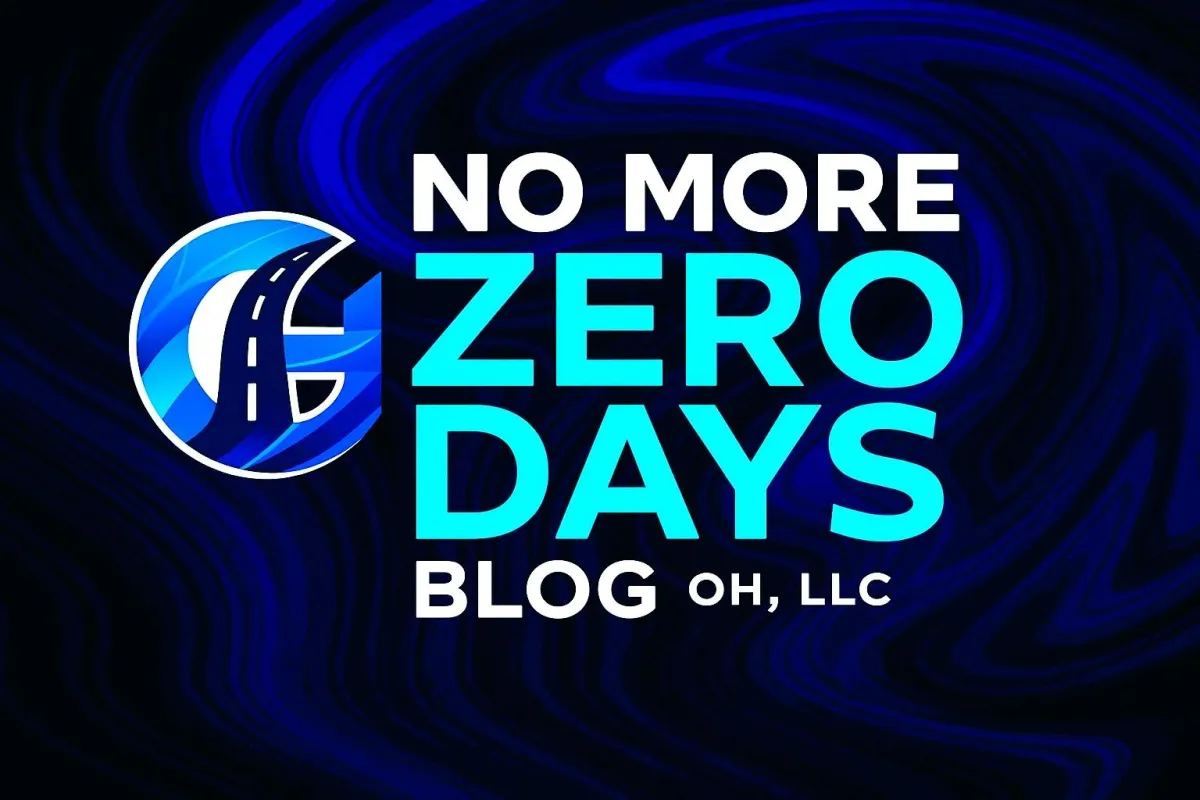
No More Zero Leads: Supercharge Home Service Contractor Growth with Game-Changing Smart Directory Features!
So it’s 2 AM, and a homeowner discovers water gushing from their ceiling. Meanwhile, across town, a skilled emergency plumber is available but invisible to this desperate customer scrolling through outdated directory listings. This disconnect between urgent needs and available expertise isn’t just frustrating, it’s a missed opportunity for everyone involved.
Today’s home service industry is experiencing a digital transformation, with over 80% of homeowners now searching online for contractors before making hiring decisions. Yet many community directories still operate like digital yellow pages, missing the mark on what both customers and contractors need to succeed.
The Emergency vs. Planned Service Reality
Home service requests aren’t created equal, and brilliant directories recognize this fundamental difference. When someone’s air conditioning fails during a heatwave or their electrical panel starts sparking, they’re not shopping around for the best deal; they need help now.
Emergencies demand what industry experts call “crisis-mode optimization.” This means featuring contractors’ real-time availability, verified emergency response capabilities, and transparent after-hours pricing. Customers in these situations prioritize reliability and speed over extensive comparison shopping.
Planned services operate in a completely different mindset. Whether it’s scheduling annual HVAC maintenance or planning a kitchen electrical upgrade, customers have the luxury of time. They want detailed contractor profiles, comprehensive project galleries, and the ability to schedule appointments weeks in advance.
The most effective directories create separate user experiences for these distinct needs while maintaining a unified platform that serves both scenarios seamlessly. This dual approach recognizes that the same contractor might handle both emergency repairs and planned installations, but the customer’s mindset and needs are completely different in each scenario.
Modern Trust Verification That Goes Beyond Star Ratings
While customer reviews remain essential, recent studies show that homeowners increasingly want professional verification alongside peer feedback. A glowing review from someone who loved their contractor’s punctuality doesn’t necessarily indicate quality electrical work that meets safety codes.
Progressive directories are implementing multi-layered trust systems that combine customer satisfaction with professional credentials. This includes real-time license verification, insurance status updates, and transparency around professional certifications.
“Local Authority Endorsed” badges are becoming particularly valuable, awarded to contractors who consistently pass inspections, maintain proper licensing, and demonstrate community involvement. These professional trust signals often carry more weight than anonymous online reviews when homeowners are making decisions about safety-critical services.
Photo verification technology now allows contractors to showcase actual local work while preventing the common problem of imported project images from other markets, a practice that has contributed to consumer skepticism about contractor directories. Advanced verification systems also cross-reference project photos with permit records and inspection reports, creating an additional layer of authenticity that benefits both customers and honest contractors.
Intelligent Job Matching That Actually Works
Not every plumbing issue requires a master plumber, and not every electrical task needs a commercial specialist. Smart matching systems that consider job complexity, urgency, and contractor expertise create better outcomes for everyone involved.
Instead of broad plumbing repair categories, effective directories use guided diagnostic questionnaires. Questions like Are you experiencing a leak, drainage issue, or complete system failure? Help match customers with appropriately skilled contractors while preventing overqualified specialists from bidding on routine maintenance.
This approach also helps contractors manage their time more effectively, focusing their expertise where it’s most needed while allowing newer professionals to build experience with simpler projects. Machine learning algorithms can analyze successful matches over time, continuously improving the system’s ability to connect the right contractor with the right job.
Advanced matching systems also consider geographic factors beyond simple distance. A contractor might be geographically close but stuck in traffic during rush hour, while another slightly farther away has clear routes and can respond faster. Real-time traffic integration ensures that customers get accurate arrival estimates, reducing frustration and improving service quality.
Pricing Transparency That Builds Confidence
Home service pricing anxiety is real, and research shows it’s one of the top barriers preventing homeowners from hiring contractors. However, forcing contractors into unrealistic flat-rate commitments for inherently variable work isn’t the solution.
Successful directories are implementing range-based pricing displays: “Drain cleaning typically ranges $150-$400, depending on severity and accessibility.” This approach helps customers budget appropriately while giving contractors necessary flexibility for complex situations.
Advanced estimate systems now capture job details through photos and detailed questionnaires, allowing contractors to provide more accurate initial pricing while reducing unnecessary site visits. Some platforms are experimenting with video consultations, enabling contractors to assess situations remotely before committing to on-site visits.
Dynamic pricing models are also emerging that factor in urgency, time of day, and seasonal demand. Emergency weekend calls naturally cost more than routine Tuesday morning appointments, and transparent pricing helps customers understand these differences while ensuring contractors are fairly compensated for inconvenient hours.
Real-Time Scheduling and Modern Communication
Today’s customers expect Uber-level clarity about service availability and arrival times. Modern contractor directories are integrating with scheduling systems to show actual availability, not just business hours.
Emergency services benefit from GPS tracking and arrival notifications, while planned services need coordination tools for material delivery and multi-day projects. Weather consideration features are becoming standard for exterior work, automatically suggesting alternatives during bad weather.
Communication tools within these platforms are evolving beyond simple messaging. Video consultations allow contractors to diagnose problems remotely, potentially solving simple issues without site visits or preparing more effectively for complex jobs. Automated update systems keep customers informed about arrival times, potential delays, and project progress without requiring constant contractor attention.
Integration with smart home devices is beginning to emerge, where connected systems can automatically detect issues and alert both homeowners and preferred contractors. Imagine a smart water sensor detecting a leak and immediately connecting the homeowner with available emergency plumbers while providing real-time diagnostic data to help contractors prepare.
Marketing Tools That Actually Help Small Businesses
Most contractors excel at their trade but struggle with digital marketing. According to recent surveys, over 60% of small contractors cite marketing as their biggest business challenge.
Smart directories are building automated project documentation systems where contractors can easily create portfolio pieces during their regular workday. Seasonal marketing automation helps maintain customer relationships. HVAC contractors can automatically reach previous customers before peak seasons, while drain cleaning services can target customers during high-usage periods.
Content marketing tools are becoming increasingly sophisticated, helping contractors establish thought leadership in their communities. Automated blog post generators can help contractors share maintenance tips, safety advice, and industry insights without requiring extensive writing skills or time investment.
Social media integration allows contractors to showcase their work across multiple platforms simultaneously. At the same time, reputation management tools help monitor and respond to reviews across all major platforms from a single dashboard. Email marketing automation can nurture leads over time, staying top-of-mind for future projects without constant manual effort.
Local SEO and Mobile-First Design
With mobile searches accounting for over 70% of home service queries, directories must prioritize mobile optimization to stay competitive. Emergency interfaces need large, easily clickable phone numbers and seamless GPS navigation integration.
Voice search optimization is becoming increasingly crucial as customers increasingly ask their devices for help in emergencies. When someone desperately says, “Find an emergency plumber near me,” experienced local contractors should appear prominently in results.
Hyperlocal SEO strategies are evolving to target neighborhood-level searches. Contractors servicing specific subdivisions or community areas can now optimize for extremely targeted local queries, competing on relevance rather than just general proximity. This approach particularly benefits smaller contractors who excel within specific geographic areas.
Progressive Web App (PWA) technology is enabling directory platforms to function almost like native mobile apps while remaining accessible through web browsers. This provides fast, app-like experiences for both contractors managing their profiles and customers seeking services, all without requiring separate app downloads.
Building Genuine Community Connections
The most successful directories extend beyond business listings to create real community value. Educational content partnerships allow contractors to share seasonal maintenance tips and safety advice, positioning them as trusted local experts rather than just service providers.
Cross-referral networks among complementary contractors, such as electricians recommending trusted HVAC specialists, create win-win situations that benefit customers while fostering professional relationships within the community.
Community projects showcase interesting local work, from historic home restorations to innovative energy efficiency upgrades, building contractor credibility while inspiring homeowners about the possibilities for their own properties.
Local event integration helps contractors participate in community activities like home shows, safety fairs, and educational workshops. These platforms can coordinate contractor participation in community events, fostering deeper local connections that go beyond transactional relationships.
Neighborhood-specific forums within these directories allow residents to share recommendations, discuss common local issues, and coordinate group services like bulk chimney cleaning or neighborhood security system installations. This community aspect transforms directory platforms from simple listing services into genuine local hubs.
Data Analytics That Drive Better Decisions
Modern contractor directories generate valuable insights that benefit both service providers and customers. Analytics platforms are helping contractors understand peak demand periods, optimize pricing strategies, and identify growth opportunities.
Customer behavior analytics help contractors understand what types of projects are trending in their area, allowing them to adjust their service offerings or marketing focus accordingly. Seasonal pattern analysis helps contractors prepare for demand fluctuations and manage their workforce more effectively.
Performance metrics go beyond simple job completion rates to include customer satisfaction scores, repeat business percentages, and referral generation. These insights help contractors identify areas for improvement while providing directories with data to improve their matching algorithms.
Market trend analysis helps both contractors and customers understand fair pricing for various services in their specific geographic area. This transparency benefits everyone by setting realistic expectations and preventing both overcharging and underbidding, which can lead to quality issues.
Frequently Asked Questions:
Q: How can small contractors compete with larger companies on these directory platforms?
Modern directories actually level the playing field for smaller contractors by emphasizing trust signals, local expertise, and customer relationships over company size. Small contractors often provide more personalized service and have deeper community connections. Smart directories highlight these advantages through verified local project showcases, community involvement badges, and customer testimonials that emphasize personal attention and quality craftsmanship.
Q: What’s the best way to handle pricing transparency without losing negotiation flexibility?
The key is range-based pricing, which sets customer expectations while preserving the necessary flexibility for complex or unique situations. Display typical cost ranges with clear explanations of factors that might affect final pricing, such as accessibility, material choices, or permit requirements. This approach builds customer confidence while protecting contractors from unrealistic pricing expectations.
Q: How do emergency services differ from regular scheduling in directory systems?
Emergency services require real-time availability displays, GPS tracking, immediate response capabilities, and transparent after-hours pricing. The user interface prioritizes speed over detailed comparison shopping, featuring prominent contact buttons, current availability status, and estimated response times. Regular scheduling can emphasize detailed profiles, project galleries, and calendar booking systems that accommodate customers’ research preferences.
Q: What trust verification methods actually matter to customers?
Professional credentials carry the most weight, including current license verification, insurance status, professional certifications, and permit history. Local authority endorsements from building departments and professional associations provide powerful trust signals. Photo-verified project galleries showing actual local work, combined with customer testimonials that include specific project details, create comprehensive trust profiles that go beyond simple star ratings.
No More Zero Days in the Home Services Revolution Takeaway
The home services industry stands at a pivotal moment. Every day that passes with ineffective contractor directories represents missed opportunities for skilled professionals struggling to find quality leads, for homeowners settling for subpar service, and for communities that could benefit from better-maintained properties and stronger local economies.
This isn’t just about building better technology; it’s about creating systems that honor the skill and dedication of professional contractors while serving the genuine needs of homeowners. It’s about recognizing that behind every emergency repair call is both a family in distress and a skilled professional ready to help if the connection can be made effectively.
The contractors reading this have built their reputations one satisfied customer at a time, often competing against poorly designed platforms that favor volume over quality. The entrepreneurs and community builders reading this have the opportunity to change that narrative entirely.
This is your moment to make a difference. Whether you’re a contractor tired of ineffective lead generation, a community leader wanting to support local businesses, or an entrepreneur seeing the massive opportunity in this underserved market, the time for action is now.
The technology exists. The market need is proven. The community impact is real. What’s missing is leaders who understand that true success comes from creating genuine value for everyone involved, contractors, customers, and communities alike.
Remember the 'No More Zero Days' mindset: every single day is an opportunity to build something better than what exists today. The home services industry doesn’t need another generic directory platform. It needs thoughtful solutions that respect the professionalism of skilled trades while genuinely serving homeowners’ varied needs.
Your community deserves better connections between skilled professionals and the people who need their expertise. The question isn’t whether this revolution in home services will happen; it’s whether you’ll be the one leading it in your market.
Stop accepting zero days of progress. Start building the platform your community actually needs. The contractors, homeowners, and local economy, depending on better solutions, are waiting for someone exactly like you to make it happen.
The tools are available. The opportunity is massive, and the time is now.
Cheers and all the Best, Timothy
Link to the article in Brief Form at my LinkedIn Page:
References:
How Reviews Can Make Your Business. https://sknidipwax.com/how-reviews-can-make-your-business/
5 Features You Need For Review Management Software - Get More 5-Star Reviews - Review Eagle. https://revieweagle.com/5-features-you-need-for-review-management-software/
The Future Of Web Development. https://www.steme.org/post/web-development









Instagram
LinkedIn
Youtube
X